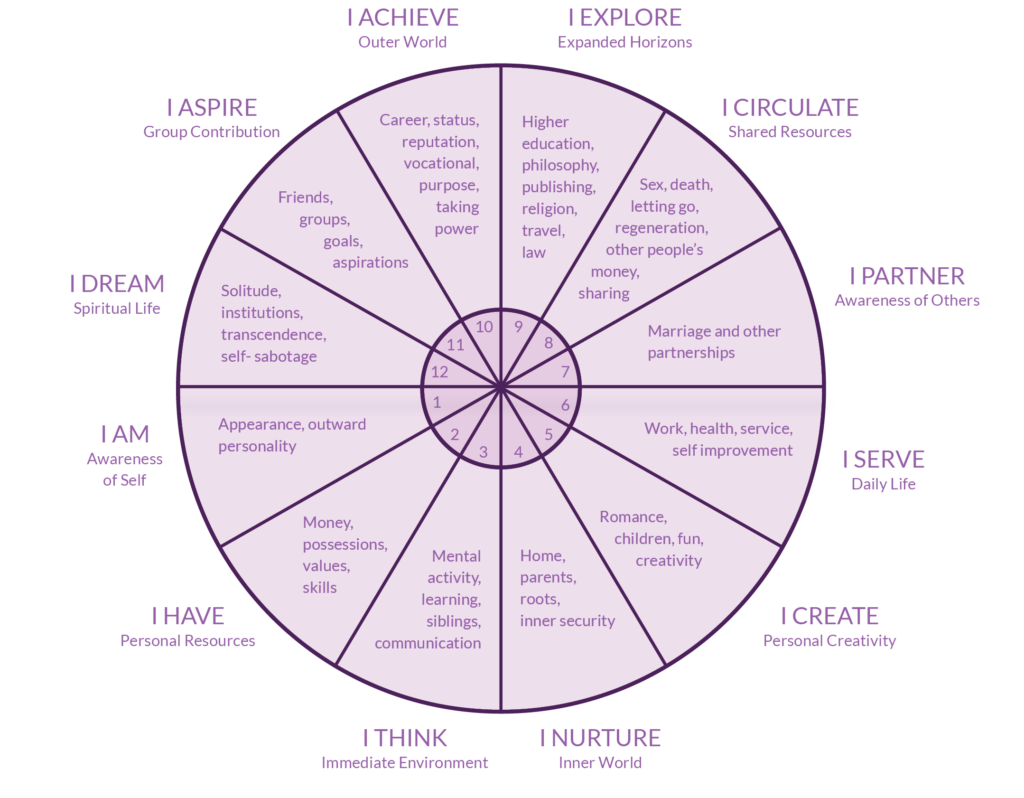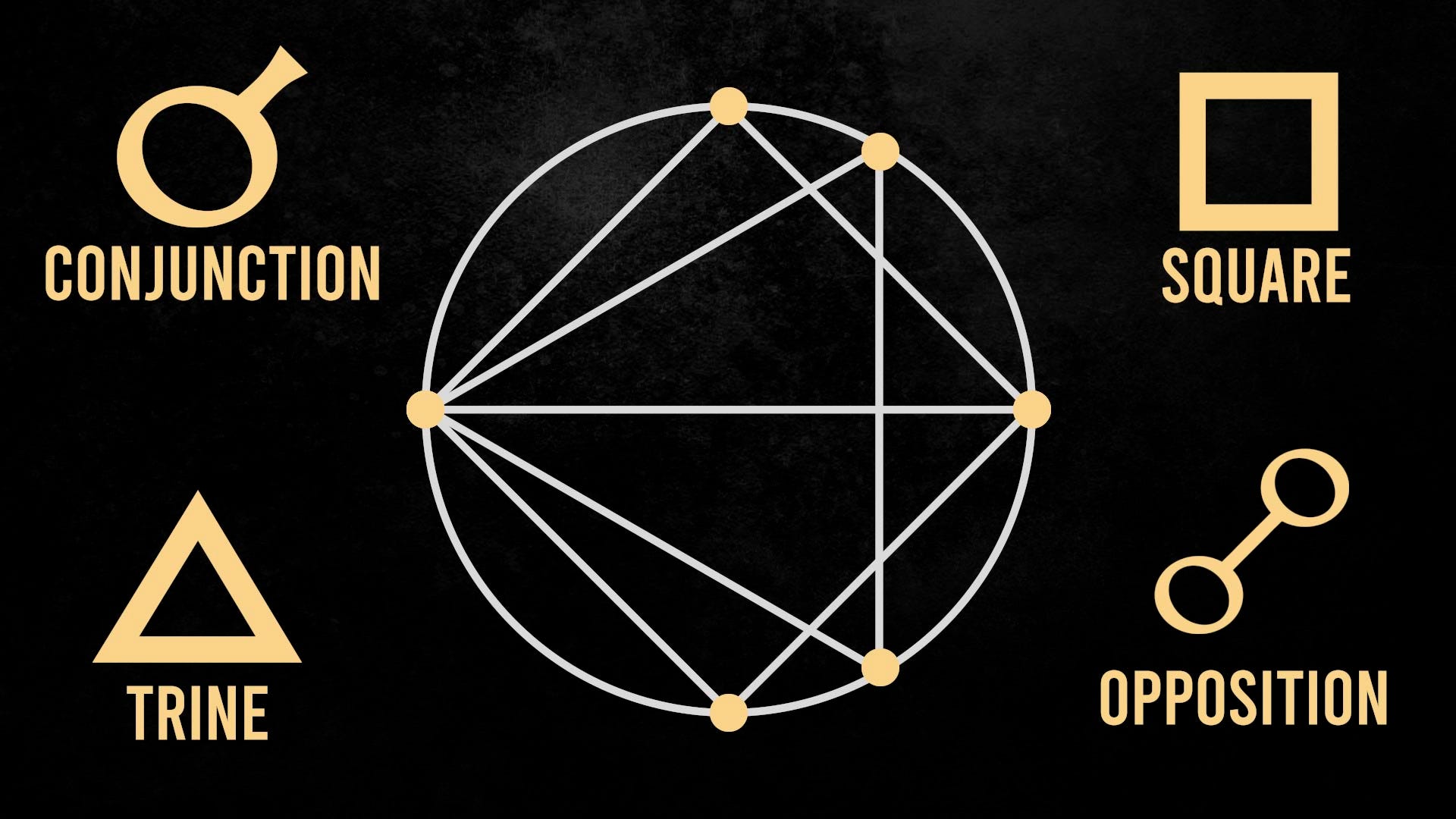Imagine being able to unlock the hidden aspects of your personality and gain a deeper understanding of yourself. In this article, we explore the fascinating world of astrology and how it can serve as a roadmap to uncovering your true self. By deciphering the various aspects in astrology, you can gain valuable insights into your strengths, weaknesses, and unique characteristics. Whether you’re a born skeptic or a firm believer, join us on this journey to explore the hidden depths of your personality through the lens of astrology.
What is Astrology?
Definition of astrology
Astrology is the ancient practice of studying the movements and positions of celestial bodies, such as the stars and planets, and interpreting their influence on human behavior and events on Earth. It is based on the belief that there is a connection between the positions of celestial bodies at the time of a person’s birth and their personality traits, characteristics, and life events.
Origins of astrology
The practice of astrology can be traced back thousands of years to ancient civilizations such as the Mesopotamians, Egyptians, and Greeks. These civilizations observed the movements of the stars and planets and recognized patterns and correlations with human behavior and events. Over time, astrology evolved and incorporated different cultural and philosophical influences, resulting in various astrological systems and approaches around the world.
Astrology as a belief system
Astrology is not simply a science; it is also a belief system. Many people turn to astrology as a tool for self-reflection, guidance, and understanding. While it may not have a scientific basis in the traditional sense, astrology offers individuals a way to explore their personalities, relationships, and life choices from a different perspective. It provides a comprehensive framework that can illuminate various aspects of a person’s life and help them navigate challenges and opportunities.
The Role of Aspects in Astrology
Definition of aspects in astrology
Aspects are the angles created by the positions of planets in relation to one another on an astrological chart. They represent the energetic interactions and relationships between these celestial bodies. Each aspect has a specific meaning and influence on an individual’s personality traits, tendencies, and life experiences.
Importance of aspects in determining personality
Aspects play a crucial role in determining a person’s unique personality traits. They provide valuable insights into how different planetary energies blend and interact within an individual’s natal chart. By understanding the aspects in their birth chart, people can gain a deeper understanding of their strengths, weaknesses, challenges, and potential gifts. Aspects can shed light on both positive and negative aspects of a person’s character, allowing for greater self-awareness and personal growth.
How aspects are calculated
To calculate aspects in astrology, the positions of planets in the zodiac are measured and analyzed. Aspects are determined by the angular distances between these planetary positions. The most common aspects are measured in degrees, with specific angles corresponding to different aspects. These angles include conjunction, opposition, trine, square, and sextile, among others. Astrologers use specialized software or manual calculations to determine the precise aspects in an individual’s birth chart.

This image is property of kathrynhocking.com.
Types of Aspects
Major aspects
Major aspects refer to the primary and most potent connections between planets in an astrological chart. They include conjunction, opposition, trine, square, and sextile. These aspects have a significant influence on a person’s personality and life experiences and are often given greater emphasis in astrological interpretations.
Minor aspects
Minor aspects are less commonly discussed in astrology but still hold significance in understanding a person’s personality traits and life patterns. Examples of minor aspects include quincunx, semi-sextile, semi-square, quintile, and biquintile. While their effects may be subtler, they can add depth and nuance to an astrological reading and provide valuable insights into a person’s character and motivations.
Neutral aspects
Neutral aspects, also known as neutral or soft aspects, are angles that do not have a clear and distinct influence on an individual’s personality or life events. These aspects include inconjunct, quintile, biquintile, and sesquiquadrate. They neither heavily influence nor overshadow other aspects in a person’s chart but still contribute to the overall astrological makeup.
Major Aspects
Conjunction
A conjunction occurs when two or more planets are in close proximity to each other, typically within the same zodiac sign. It signifies a merging and blending of energies, intensifying the influence of the involved planets. Conjunctions can create a strong focus on specific areas of life and often indicate powerful traits, talents, or challenges within an individual. Depending on the planets involved, conjunctions can result in dynamic and transformative energies.
Opposition
Opposition occurs when planets are approximately 180 degrees apart in the zodiac. It represents a tension or polarity between the energies and qualities of the involved planets. Oppositions can highlight contrasting aspects of an individual’s personality and often manifest as inner conflicts or external challenges. However, they also provide opportunities for growth, balance, and integration of opposing forces.
Trine
A trine occurs when planets are approximately 120 degrees apart in the zodiac. It represents harmony and ease between the energies and qualities of the involved planets. Trines signify innate talents, strengths, and areas of natural flow in an individual’s life. They often indicate favorable circumstances, opportunities, and positive outcomes associated with the planets involved. Trines can enhance creativity, communication, and emotional well-being.
Square
A square occurs when planets are approximately 90 degrees apart in the zodiac. It represents a dynamic and challenging aspect where energies clash and compete. Squares often indicate areas of tension, obstacles, and conflicts in an individual’s life. However, they also offer opportunities for growth, development, and transformation. Squares can fuel motivation, determination, and resilience, helping individuals overcome obstacles and achieve their goals.
Sextile
A sextile occurs when planets are approximately 60 degrees apart in the zodiac. It represents opportunities, harmony, and cooperation between the energies and qualities of the involved planets. Sextiles can indicate areas of natural talent, creativity, and fortunate circumstances in an individual’s life. They promote positive interactions, ease of communication, and opportunities for personal growth and development.

This image is property of miro.medium.com.
Minor Aspects
Quincunx
A quincunx occurs when planets are approximately 150 degrees apart in the zodiac. Also known as an inconjunct, it represents a somewhat discordant and challenging aspect. Quincunxes often indicate areas of tension, adjustment, and adaptation in an individual’s life. They require flexibility, compromise, and willingness to make changes to find balance and harmony.
Semi-Sextile
A semi-sextile occurs when planets are approximately 30 degrees apart in the zodiac. It represents a subtle aspect that highlights minor connections between the energies and qualities of the involved planets. Semi-sextiles can indicate areas of potential growth, learning, and integration. They encourage individuals to bridge the gap between seemingly unrelated aspects of their lives and find harmony in contrasts.
Semi-Square
A semi-square occurs when planets are approximately 45 degrees apart in the zodiac. It represents a tense and challenging aspect that combines the qualities of both squares and semi-sextiles. Semi-squares indicate areas of friction, conflict, and obstacles that require attention and resolution. They can add a sense of urgency, determination, and motivation to an individual’s life, leading to personal growth and self-discovery.
Quintile
A quintile occurs when planets are approximately 72 degrees apart in the zodiac. It represents a harmonious and creative aspect that stimulates the expression of individuality and unique talents. Quintiles often indicate areas of inspiration, innovation, and special abilities within an individual. They promote the development of creativity, aspirations, and unconventional approaches in various areas of life.
Biquintile
A biquintile occurs when planets are approximately 144 degrees apart in the zodiac. It represents a subtle and harmonious aspect similar to quintiles. Biquintiles amplify the qualities of the involved planets and often indicate unique talents, creative abilities, and spiritual inclinations. They encourage individuals to embrace their individuality and pursue their passions with enthusiasm and dedication.
Neutral Aspects
Inconjunct
An inconjunct, also known as a quincunx, occurs when planets are approximately 150 degrees apart in the zodiac. It represents an angle that does not have a clear and distinct influence on an individual’s personality or life events. Inconjuncts are often subtle and require adjustments and compromises to find balance and harmony in various areas of life. They encourage individuals to embrace flexibility and adaptability to navigate challenges effectively.
Quintile
The quintile has already been discussed in the section on minor aspects.
Biquintile
The biquintile has already been discussed in the section on minor aspects.
Sesquiquadrate
A sesquiquadrate occurs when planets are approximately 135 degrees apart in the zodiac. It represents a challenging and conflicting aspect that combines the qualities of squares and semi-squares. Sesquiquadrates can create tension, restlessness, and the need for resolution in an individual’s life. They require conscious awareness and action to overcome obstacles and develop personal growth and transformation.

This image is property of astroragaa.com.
Interpreting Aspects
Understanding the meaning of different aspect combinations
Interpreting aspects in astrology involves understanding the unique meanings and influences of different aspect combinations. The nature of the planets and the specific aspects involved can significantly shape the interpretation. For example, a conjunction between Mercury and Mars may indicate a quick-thinking, assertive, and mentally-driven personality, while a conjunction between Venus and Neptune may suggest a compassionate, dreamy, and creative nature.
Considering the planets involved in the aspect
The planets involved in an aspect provide additional insights into the specific qualities and energies at play. Each planet represents different aspects of life, such as communication, emotions, action, relationships, and spirituality. Understanding the planets involved allows astrologers and individuals to examine the specific areas of life influenced by the aspect and gain a deeper understanding of how these energies manifest in their personality and experiences.
Examining the signs and houses of the planets
The signs and houses in which the planets are located further refine the interpretation of aspects. Astrology divides the zodiac into twelve signs, each with unique qualities and characteristics, while houses represent different areas of life. The combination of signs and houses can provide information on how the aspect energies manifest in specific areas such as relationships, career, and self-expression. Examining the signs and houses adds depth and specificity to the interpretation of aspects.
Aspects and Personality Traits
How aspects can influence personality
Aspects can strongly influence an individual’s personality traits by highlighting specific characteristics and tendencies. Positive aspects, such as trines and sextiles, can enhance and amplify certain qualities, promoting harmony, ease, and positive traits in a person’s character. Challenging aspects, such as squares and oppositions, may indicate areas of tension, conflicts, and obstacles that require conscious effort and growth to overcome. Understanding the aspects in one’s birth chart allows for a deeper awareness and acceptance of different aspects of one’s personality.
The impact of major aspects on personality
Major aspects, such as conjunctions, oppositions, trines, squares, and sextiles, have a profound impact on a person’s personality. They shape core aspects of character, behavior patterns, and life experiences. Conjunctions can intensify and blend planetary energies, creating a strong focus and emphasis on specific traits. Oppositions highlight inner conflicts and challenges that contribute to personal growth and integration. Trines signify innate talents and areas of natural flow, enhancing positive qualities in one’s character. Squares fuel drive, determination, and resilience in overcoming obstacles, while sextiles provide opportunities for personal growth and development.
The role of minor aspects in shaping personality
While minor aspects may have a subtler influence, they play a significant role in shaping an individual’s personality. Minor aspects add depth, nuance, and complexity to the interpretation of a birth chart. They can highlight specific talents, challenges, and areas where personal growth and integration are necessary. Understanding minor aspects allows individuals to gain a more comprehensive understanding of the different facets of their personality and how they influence their interactions and experiences in life.

This image is property of Amazon.com.
Using Aspects for Self-Discovery
Identifying dominant aspects in your birth chart
To use aspects for self-discovery, it is essential to identify the dominant aspects in your birth chart. Several online resources and astrological software can generate a detailed birth chart that includes the aspects. By examining the aspects and their specific qualities, individuals can gain insights into their primary personality traits, strengths, areas of potential growth, and life patterns. Identifying dominant aspects provides a roadmap for self-understanding, allowing individuals to embrace their unique qualities and navigate their lives with greater awareness.
Analyzing the strengths and weaknesses associated with specific aspects
Every aspect carries a unique combination of strengths and weaknesses. By analyzing the specific strengths and weaknesses associated with aspects in their birth chart, individuals can gain a better understanding of their own tendencies and potential areas for improvement. For example, someone with a strong trine aspect may have a natural talent in a particular area but may also have the tendency to become complacent or rely too heavily on their natural abilities. Awareness of both the positive and negative aspects of aspects empowers individuals to make conscious choices and work towards personal growth.
Utilizing aspects for personal growth and self-improvement
Astrological aspects can be valuable tools for personal growth and self-improvement. By understanding the influence of different aspects in their birth chart, individuals can identify specific areas of their life that require attention, development, and transformation. Knowledge of the potential challenges and growth opportunities associated with their aspects can guide individuals in their efforts to overcome obstacles, refine their strengths, and cultivate positive traits. Utilizing aspects for personal growth allows individuals to maximize their potential, foster self-awareness, and lead more fulfilling lives.
Conclusion
The significance of aspects in astrology
Aspects play a vital role in astrology, providing a roadmap to understanding an individual’s personality traits, tendencies, and life experiences. They represent the energetic interactions and relationships between celestial bodies and highlight the unique qualities and challenges in a person’s life. By interpreting aspects in an astrological chart, individuals can gain valuable insights into their strengths, weaknesses, and growth opportunities. Aspects form the foundation for astrological analysis and provide a comprehensive framework for self-understanding and personal growth.
Applying astrological aspects for self-understanding and interpersonal relationships
Understanding astrological aspects empowers individuals to gain a deeper understanding of themselves and their relationships with others. By recognizing the strengths and challenges associated with specific aspects, individuals can navigate their personal and professional relationships more effectively, fostering understanding and compassion. Utilizing astrological aspects for self-understanding can also enhance personal growth, allowing individuals to embrace their unique qualities and develop their untapped potential. The wisdom and insights derived from aspect analysis can enrich all aspects of life, enabling individuals to lead more fulfilling and harmonious lives.

This image is property of tonytherainbowhealer.files.wordpress.com.

